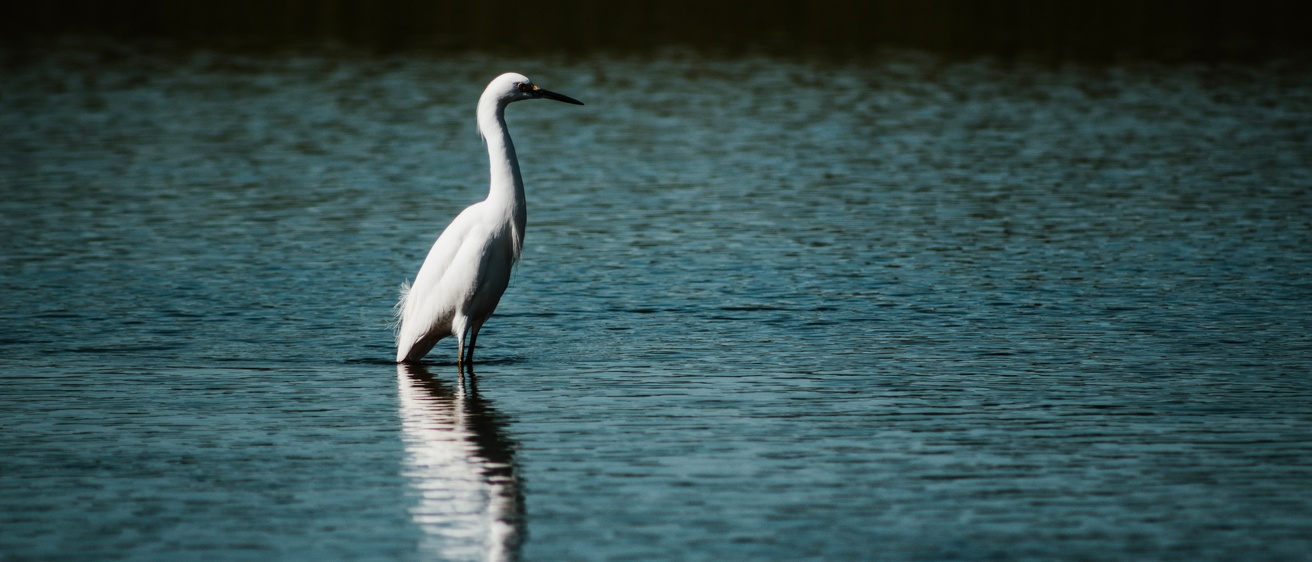When despair for the world grows in me
and I wake in the night at the least sound
in fear of what my life and my children’s lives may be,
I go and lie down where the wood drake
rests in his beauty on the water, and the great heron feeds.
I come into the peace of wild things
who do not tax their lives with forethought
of grief. I come into the presence of still water.
And I feel above me the day-blind stars
waiting with their light. For a time
I rest in the grace of the world, and am free.—The Peace of Wild Things, by Wendell Berry
It is not far-fetched to imagine that many of us have recently had an experience like the one described in the first three lines of the poem. We are living in difficult and challenging times fraught with injustice and inequities, with threats within and without: COVID-19, climate change, the war in Ukraine, painful losses, difficult relationships, work, finances, etc.; most characterized by uncertainty.
The last line of the poem suggests that by resting in “the grace of the world,” one may become free, at least for the moment, of the fear and despair experienced in reaction to the uncertainty and unpredictability of the world.
Grace, the experience of gifts freely given, is ever present; it’s the body breathing, and the heart beating, it is seeing, tasting, smelling, touching, and feeling (emotion), thinking, and it is language and speech, listening, laughter, kindness, generosity and gratitude, and it is the awareness that knows in and through all these and more. “Resting” in grace requires patience, the ability to stay and attend long enough to receive and savor what has been freely given.
During the winter years ago, I was asked to give the sermon at a church in Brookings, South Dakota, where I was living and working. When I came out to my car, individual ice crystals, in all their beauty and wonder, were visible on the windshield, and, for a moment, I saw them. Then I began scraping impatiently, and I realized that those incredibly beautiful crystals, which were freely given to me, in that moment were objects that were in my way, that I needed to get out of my way, so I could get on my way.
Check yourself now, if you like, noticing any feelings of impatience that are pushing you to get through this article so you can get on to or back to what feels like it needs to be done. That’s not your fault. The demands and pace of our lives often require this attitude from us. People, emotions, conversations, eating, exercise—even vacations—become objects that are in our way, that need to be gotten out of our way, so we can get on our way. Little room is left for cultivating an attitude of wonder and curiosity, and the patience required to witness and savor the grace that makes our lives possible.
There are practices that create conditions allowing a patient witnessing to emerge from deep within us to open and receive the gifts freely given. This attitude of patient witnessing is the antidote to the attitude that treats every something and someone as objects that are in the way, and must be gotten out of the way, so we can get on our way.
One practice is to slow the pace of our lives whenever possible. When noticing ourselves rushing with the mind racing toward the future, we can tune into any one of our senses, e.g., feeling the breathing sensations, noticing seeing or hearing, etc., immediately anchoring us here, now. While shaping a condition that may allow the attitude of patient witnessing to emerge, this resting back in awareness of the present moment may have the added benefit of easing anxiety and balancing uncertainty. For example, when we realize that, though feeling anxious and unsafe, we actually are safe, here and now; or we realize that, though feeling helpless or powerless, we actually have some power and control in this moment because we can choose to stay and, perhaps, rest in it gracefully.
A second helpful practice is to look up, as I did a moment ago, above the computer, to the gray, cloudy sky, interrupting the push to complete this task, so I can get on to the next one, and the next. Instead, looking up creates a much larger context, one that, perhaps, makes room for patient witnessing of the mystery of writing, of a computer, of clouds and rain, and the seeing and the knowing and hearing, and the awareness that makes it all possible.
Finally, allowing our face to relax into a smile may shift our attitude from impatiently pushing through to the next thing, to gently resting back in the freely given gift that is each moment.
The fear and despair experienced in reaction to the uncertainty and unpredictability of the world is not going away any time soon, however, it is possible to make room for and cultivate an attitude of wonder and curiosity, and the patience required to witness and savor the grace present in each moment of our lives.
